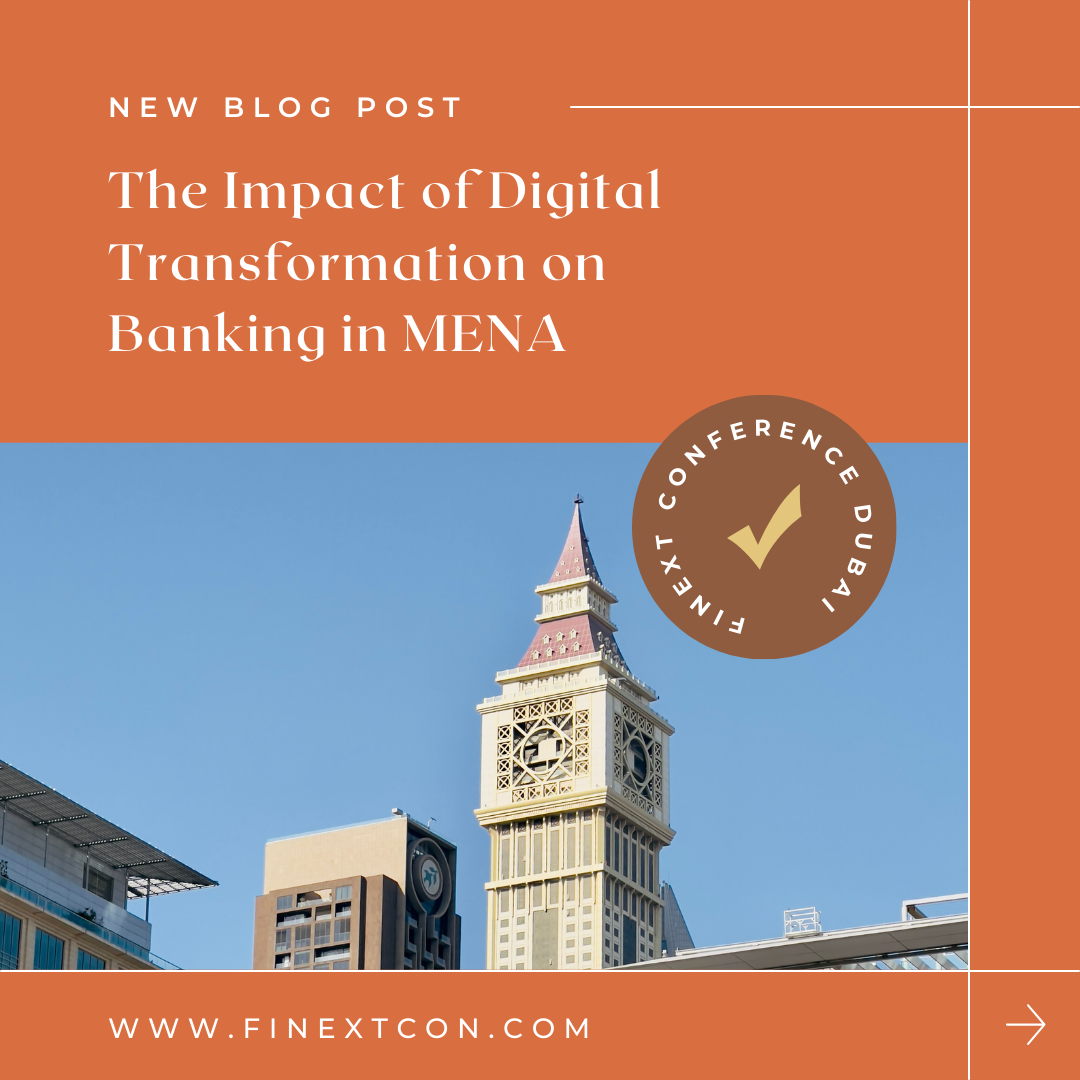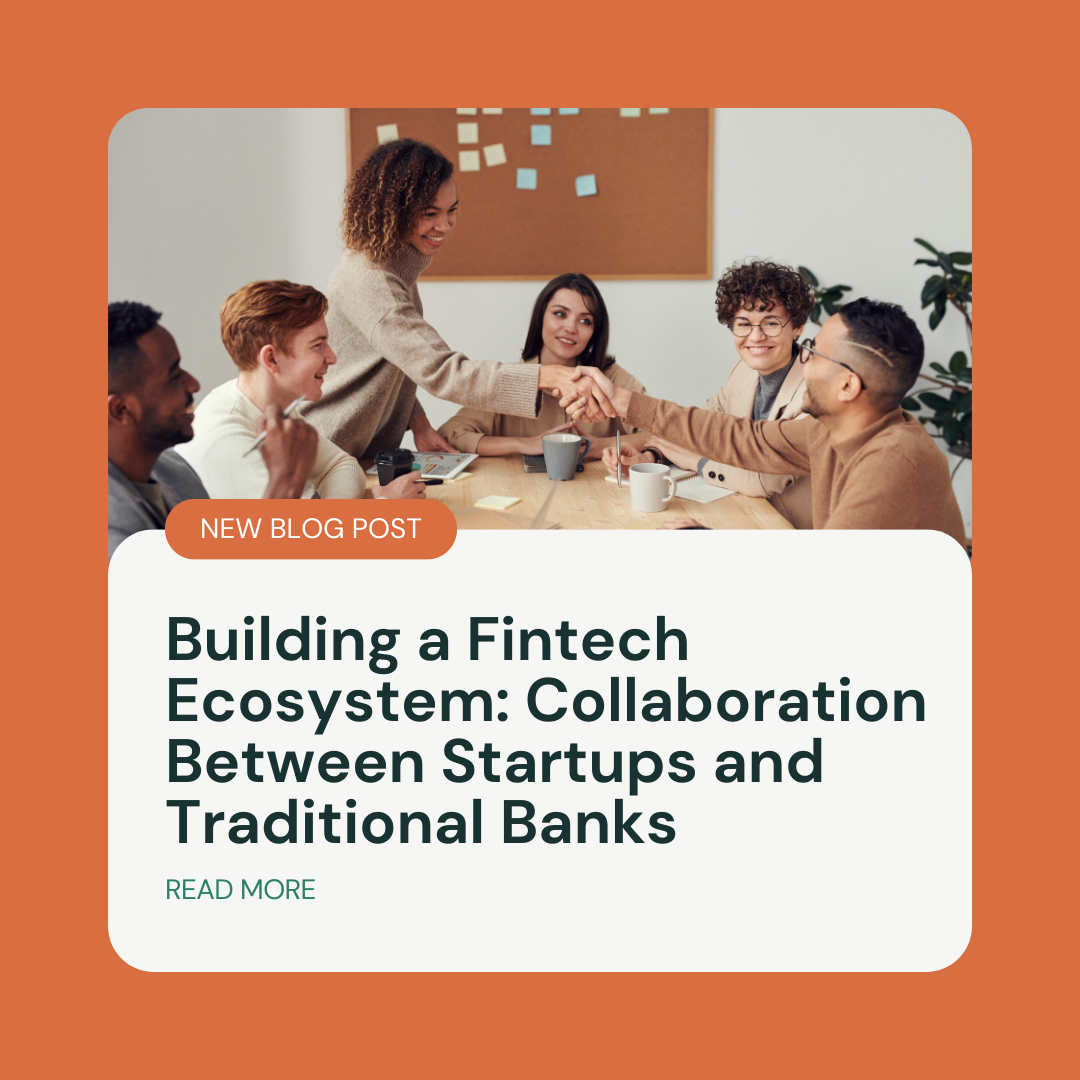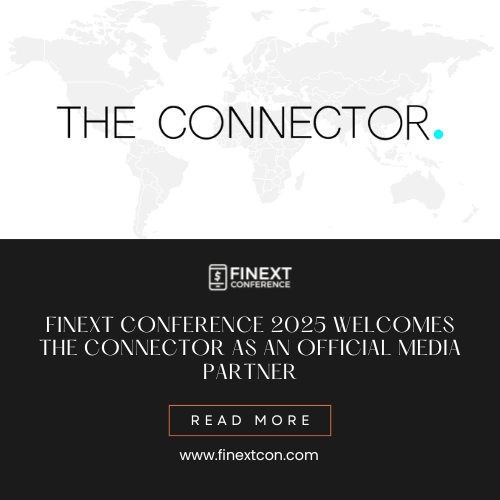The global financial technology landscape is buzzing with anticipation for the upcoming FiNext Conference 2025, a premier event that brings together industry leaders, innovators, and disruptors from the fintech world. Scheduled to be held in the dynamic tech hub of Las Vegas, FiNext 2025 promises to set the stage for cutting-edge discussions, breakthrough innovations, and collaborative growth within the fintech space. As excitement builds, we are thrilled to announce that Cryptoken Media has officially joined as the media partner for the FiNext Conference 2025! This collaboration marks a significant step toward amplifying the reach of this monumental event and ensuring comprehensive coverage across the fintech and cryptocurrency ecosystem. Why Cryptoken Media? Cryptoken Media is a global leader in crypto and blockchain-focused media, known for its in-depth analysis, exclusive interviews, and real-time updates on the fast-evolving digital currency markets. With a dedicated audience of tech-savvy readers, investors, and industry insiders, Cryptoken Media plays a crucial role in shaping conversations around the latest trends in decentralized finance (DeFi), blockchain innovations, and regulatory landscapes. Their partnership with FiNext 2025 will bring the event to the forefront of the global fintech community, ensuring that key discussions, announcements, and innovations are shared with a wider audience. From expert panels on digital payments and AI-driven banking solutions to deep dives into regulatory challenges and the rise of central bank digital currencies (CBDCs), Cryptoken Media will be there to cover every groundbreaking moment. What to Expect at FiNext 2025? FiNext Conference 2025 will showcase a stellar lineup of speakers, including C-suite executives from leading financial institutions, fintech startups, regulatory authorities, and blockchain pioneers. The conference agenda includes a mix of keynote presentations, panel discussions, workshops, and networking sessions aimed at fostering collaboration and inspiring the next wave of innovation. Some of the core topics on this year’s agenda include: With Cryptoken Media as the media partner, attendees and fintech enthusiasts worldwide can look forward to detailed event coverage, expert interviews, and live updates from the conference floor. Whether you are a fintech professional, a blockchain enthusiast, or an investor eager to keep pace with the latest industry developments, Cryptoken Media will be your go-to source for all things FiNext 2025. Join Us at FiNext 2025 The partnership between FiNext and Cryptoken Media reflects a shared vision: to propel the fintech industry forward through innovation, collaboration, and knowledge sharing. Don’t miss out on this opportunity to be part of one of the most important fintech events of the year. For more information on attending FiNext Conference 2025 or to stay updated on the latest news and developments, follow Cryptoken Media’s coverage and visit the official FiNext website. Stay tuned for exciting updates, speaker announcements, and much more as we countdown to FiNext 2025!
Author: user
FiNext Conference 2025: Welcoming Industry Leaders Like Johan Kragbaek
The FiNext Conference 2025 is set to be an extraordinary event, bringing together top professionals from the financial and technology sectors to discuss the future of fintech, innovation, and business. Among the esteemed speakers is Johan Kragbaek, Senior Vice President of Business Development at Greenstone Equity Partners, one of the largest fund placement agents in the GCC. At Greenstone, Mr. Kragbaek plays a pivotal role in developing new business lines such as the Regulatory Compliance Program (RCP) and Billions.ae, a cutting-edge private equity investment platform. His work is at the intersection of regulatory innovation and private investment, offering significant insights into the evolving landscape of financial services. Before joining Greenstone, Johan was Co-CEO at Private Equity Insights, where he demonstrated exceptional leadership, especially during the challenges of the COVID-19 pandemic. His strategic redirection of the company from a conference-driven model to a broader media focus was key in maintaining the firm’s prominence. Johan’s early career spans roles in venture capital with Nova Founders Capital and even as a soldier in the Royal Danish Army, which honed his leadership abilities in diverse, high-pressure environments. Join us at FiNext 2025 to gain firsthand insights from Johan Kragbaek and other trailblazers who are shaping the future of finance and investment.
The Rising Trend: Sustainable Development in Gulf Banking Discussions
In recent weeks, Google Trends has shown a significant surge in searches related to “sustainable development in Gulf banking.” This trend reflects the growing global focus on sustainability and the role that the financial sector, particularly banks, play in driving this change. The Gulf region, with its ambitious vision for the future, is at the forefront of this conversation. The Shift Towards Sustainable Banking Sustainable development in banking is not just a buzzword; it’s a necessity. Banks in the Gulf region are increasingly recognizing their role in promoting sustainability through green financing, responsible investment, and innovative financial products. This shift is driven by both regulatory pressures and a growing demand from consumers and investors for more ethical and environmentally conscious practices. Key Trends in Sustainable Banking The Role of Gulf Banks Gulf banks are uniquely positioned to lead the charge in sustainable development due to their financial strength and regional influence. Institutions like the Abu Dhabi Global Market and the Dubai International Financial Centre are fostering ecosystems that support green finance and sustainable development. The Future of Sustainable Banking Looking ahead, the future of sustainable banking in the Gulf region is bright. Collaboration between traditional banks and fintech companies will be key to driving innovation and scaling up sustainable finance solutions. Events like the FiNext Conference, organized by InternetShine Corporation, provide a crucial platform for this collaboration. The conference, scheduled for February 10–11, 2025 in Dubai, brings together professionals and organizations in the fintech sector to discuss topics such as banking security, cash management, cloud IT platforms, and the future of financial services. Conclusion The trend of sustainable development in Gulf banking is more than just a passing fad; it’s a movement that’s here to stay. As banks continue to integrate sustainability into their core operations, they will not only contribute to a greener future but also unlock new business opportunities. Events like the FiNext Conference offer a valuable opportunity to explore these trends, network with industry leaders, and contribute to the transformation of the financial sector. By participating in the FiNext Conference, attendees can be part of shaping a more sustainable and innovative banking landscape. Join us at the FiNext Conference in Dubai from February 10–11, 2025, to be at the forefront of this global conversation and contribute to the future of sustainable banking.
The Impact of Generative AI on Customer Interactions
In recent years, the landscape of customer interactions has been reshaped by the advent of advanced technologies, with generative artificial intelligence (AI) emerging as a game-changer. Generative AI refers to a type of AI that can create new content, including text, images, and even videos. This innovative technology is transforming how businesses communicate with their customers, offering unprecedented levels of personalization and efficiency. Understanding Generative AI Generative AI leverages machine learning algorithms to create content that mimics human-like interactions. Unlike traditional AI, which focuses on analyzing and interpreting data, generative AI can produce entirely new data points based on patterns it has learned. This capability is particularly valuable in the realm of customer interactions, where the ability to craft personalized and relevant responses can significantly enhance customer satisfaction. Enhancing Customer Support One of the most significant impacts of generative AI is in the field of customer support. Chatbots and virtual assistants powered by generative AI can handle a wide range of customer inquiries, providing instant and accurate responses. These AI-driven systems can understand context, remember previous interactions, and even generate empathetic responses, creating a more natural and engaging customer experience. Personalized Marketing Strategies Generative AI is also revolutionizing marketing strategies by enabling highly personalized content creation. From generating tailored emails to creating personalized product recommendations, AI can help businesses deliver targeted marketing messages that resonate with individual customers. This level of personalization can lead to higher engagement rates, increased customer loyalty, and ultimately, better sales outcomes. Streamlining Customer Service Operations In the realm of customer service operations, generative AI can automate repetitive tasks, freeing up human agents to focus on more complex issues. For instance, AI can handle routine inquiries, process returns, and provide updates on order status, thereby reducing wait times and improving overall service efficiency. This not only enhances the customer experience but also optimizes resource allocation within the organization. The Future of Generative AI in Customer Interactions As generative AI continues to evolve, its potential in customer interactions is expected to grow exponentially. Future advancements may include more sophisticated language models, improved natural language understanding, and the ability to generate multimedia content. These developments will further enhance the capability of AI to engage customers in meaningful and impactful ways. Join Us at the FiNext Conference To stay ahead of the curve in the rapidly evolving world of financial technology, it is crucial to engage with the latest trends and innovations. The FiNext Conference, organized by InternetShine Corporation, is a premier event that brings together professionals and organizations in the fintech sector to learn, network, and collaborate. The conference, scheduled to be held in Dubai from February 10–11, 2025, will cover a range of topics, including the future of financial services and the role of emerging technologies like generative AI. Attendees will have the opportunity to participate in informative sessions, panel discussions, and an award ceremony, all aimed at bridging the gap between traditional banking and cutting-edge technologies. By attending the FiNext Conference, you can gain valuable insights… Continue Reading The Impact of Generative AI on Customer Interactions
Finext and All Conference Alert Announce Media Partnership for Upcoming Finext Conference
We are thrilled to announce that All Conference Alert has joined the Finext Conference as an official media partner for the upcoming event, further enhancing our outreach and audience engagement. As a leading platform for global conference updates, All Conference Alert will bring its expertise in conference promotion, ensuring that the 2025 Finext Conference reaches a broader audience of industry professionals, financial innovators, and thought leaders. About Finext Conference The Finext Conference is one of the premier global events in the financial technology space, bringing together top leaders, innovators, and professionals from across the industry. Focused on the future of finance, the conference covers a wide range of topics, including digital banking, blockchain technologies, artificial intelligence in finance, and fintech innovations. This year’s conference promises insightful keynote speeches, interactive panel discussions, and unmatched networking opportunities for attendees. About All Conference Alert All Conference Alert is a global platform dedicated to helping professionals stay informed about the latest conferences and events happening across industries. With a massive network of subscribers and a robust digital platform, they provide timely and accurate updates on conferences worldwide. This collaboration will allow Finext to tap into All Conference Alert’s extensive audience, ensuring greater visibility for the event. Impact of the Media Partnership This partnership will significantly benefit both Finext and All Conference Alert by leveraging their respective strengths. Finext will gain access to a larger pool of global participants, and All Conference Alert will continue to fulfill its mission of connecting professionals with top-tier events. Through this collaboration, we aim to provide attendees with an enriched experience, exposing them to cutting-edge insights and groundbreaking innovations in the fintech sector. The synergy between Finext’s commitment to advancing finance and All Conference Alert’s reach will ensure this year’s conference is the most impactful yet. What to Expect By joining forces with All Conference Alert, Finext 2025 will have: The Finext Conference 2025 will take place in Dubai, UAE, bringing together world-class speakers, innovative exhibitors, and over 1,000 participants. Don’t miss out on the opportunity to be a part of this revolutionary fintech event! For more information and to stay updated on conference details, visit Finext Conference and subscribe to All Conference Alert for timely updates.
The Impact of Digital Transformation on Banking in MENA
In recent years, the Middle East and North Africa (MENA) region has witnessed a profound shift in the banking sector, driven primarily by digital transformation. This trend, as reflected in Google’s search trends, is revolutionizing how banks operate, engage with customers, and secure their services. The Rise of Digital Banking Digital banking has emerged as a key growth area in MENA. According to a report by McKinsey, digital adoption in the region has accelerated by up to five years due to the COVID-19 pandemic. Banks are leveraging technologies like artificial intelligence, blockchain, and cloud computing to enhance their service offerings and reach a broader customer base. Enhanced Customer Experience Digital transformation has significantly improved the customer experience. Mobile banking apps, online platforms, and digital wallets offer users convenience, accessibility, and control over their financial transactions. Emirates NBD, for instance, has introduced Liv., a digital-only bank targeting millennials, which has gained significant traction. Strengthened Security Measures With the increase in digital transactions, banking security has become a paramount concern. Banks are investing heavily in cybersecurity measures to protect customer data and prevent fraud. Advanced technologies like biometric authentication and real-time fraud detection systems are being deployed to ensure secure banking experiences. Challenges and Opportunities While digital transformation presents numerous opportunities, it also poses challenges. Banks must navigate regulatory complexities, ensure data privacy, and manage the integration of new technologies with legacy systems. Collaboration with fintech companies and technology experts is crucial to overcoming these hurdles. The Future of Banking in MENA The future of banking in MENA is poised for further digital evolution. Emerging technologies like open banking, which allows third-party developers to build applications and services around financial institutions, and the adoption of 5G networks will drive innovation and competition. Conclusion As the banking sector in MENA continues to embrace digital transformation, it is essential for industry professionals to stay informed and connected. The upcoming FiNext Conference, set to take place in Dubai from February 10–11, 2025, offers a unique platform for banking security experts, financial executives, and technology specialists to network, learn, and collaborate. Organized by InternetShine Corporation, the conference will feature insightful sessions and panel discussions on the future of financial services, providing attendees with the knowledge and tools needed to navigate the ever-evolving digital landscape. By attending the FiNext Conference, participants will have the opportunity to engage with industry leaders, explore cutting-edge technologies, and contribute to the transformation of the financial sector in MENA and beyond.
FiNext Conference 2025 Welcomes Mr. Fahad Alzomea as a Keynote Speaker
FiNext Conference 2025 is proud to announce that Mr. Fahad Alzomea, a seasoned expert in financial planning, corporate treasury, and fintech, will be joining as a keynote speaker. With over 22 years of experience across various industries, including banking, insurance, telecom, retail, and fintech, Mr. Alzomea brings a wealth of knowledge and insights to the global financial community. About Mr. Fahad Alzomea Mr. Alzomea’s extensive background spans financial planning and analysis, corporate treasury, accounting, group reporting, compliance, governance, investor relations, and ERP implementation. He has successfully navigated the financial landscape in multiple industries, making him a valuable resource for attendees looking to gain actionable insights into the evolving world of finance. He holds a B.A. in Economics and Business Administration with a major in accounting from King Saud University and a master’s degree in accounting from the University of Illinois at Urbana-Champaign (UIUC). In addition, he is a certified public accountant (CPA) from the American Institute of CPAs (AICPA) in the U.S., further solidifying his expertise in global financial practices. Neoleap: Shaping the Future of Payments Mr. Alzomea currently serves at Neoleap, a cutting-edge financial technology company licensed by the Saudi Central Bank. Neoleap is at the forefront of shaping the future of payments in Saudi Arabia and beyond, providing innovative solutions that align with the Kingdom’s Vision 2030 of creating a digital economy. Under Neoleap’s umbrella are various digital solutions such as digital wallets, point-of-sale systems, e-commerce platforms, and payment gateways. The company’s mission is to empower individuals and businesses by delivering secure, seamless, and innovative payment experiences through technological leadership and operational excellence. What to Expect at FiNext Conference 2025 At FiNext Conference 2025, Mr. Alzomea will share his insights on the dynamic role of fintech in shaping the future of payments. His session will delve into how companies like Neoleap are revolutionizing the financial landscape in Saudi Arabia, providing solutions that not only meet the demands of today but are also designed to drive the digital economy of the future. His discussion is particularly relevant as businesses and governments worldwide focus on creating more secure, efficient, and innovative payment solutions. Whether you are a fintech entrepreneur, a corporate finance executive, or a banking professional, Mr. Alzomea’s insights will provide invaluable guidance on navigating the challenges and opportunities in this fast-evolving space. Don’t miss the opportunity to hear from one of the leading voices in financial planning and fintech innovation. Join us at FiNext Conference 2025 for a session that promises to be both informative and inspiring.
FiNextCon 2025 Welcomes Azhar Abdul Wahab, Group CEO of PT AdiWisista, as a Keynote Speaker
FiNextCon 2025 is proud to announce Azhar Abdul Wahab, Group CEO of PT AdiWisista, as a keynote speaker at this year’s premier financial technology conference. Azhar Abdul Wahab, a visionary leader in the fintech and digital transformation space, will be sharing his valuable insights into the future of finance, disruptive innovation, and the evolving landscape of digital solutions. With his extensive experience leading PT AdiWisista, a powerhouse in technology-driven solutions, Azhar’s participation is set to inspire attendees and shed light on the latest trends shaping the financial sector. Azhar Abdul Wahab: A Trailblazer in Fintech Azhar Abdul Wahab is renowned for his role as a driving force behind the digital revolution within financial services across the globe. As the Group CEO of PT AdiWisista, he has spearheaded initiatives that bridge the gap between traditional banking and the digital era, making financial services more accessible, efficient, and inclusive. Under his leadership, AdiWisista has been at the forefront of developing cutting-edge financial technology solutions, contributing to significant shifts in how businesses and individuals manage their finances. Azhar’s track record in leading digital transformation projects, particularly within emerging markets, makes his participation in FiNextCon 2025 highly anticipated. He has consistently pushed boundaries to introduce transformative technologies such as blockchain, AI-driven financial tools, and seamless digital payment systems—all of which have positioned AdiWisista as a thought leader in the fintech industry. A Glimpse of Azhar Abdul Wahab’s Session at FiNextCon 2025 At FiNextCon 2025, Azhar will be sharing his expertise on the theme: “Harnessing Disruptive Innovation for a Resilient Financial Future”. The session will focus on how financial institutions, startups, and technology providers can collaborate to drive the next wave of fintech evolution. Azhar will delve into topics such as: Why FiNextCon 2025 is a Must-Attend Event FiNextCon 2025 is more than just a conference—it’s a convergence of the brightest minds in finance, technology, and innovation. With an agenda packed with keynote speeches, panel discussions, networking opportunities, and product showcases, it serves as a platform where leaders in the fintech industry exchange ideas, explore solutions, and discuss the trends that are reshaping the world of finance. Azhar Abdul Wahab’s participation underscores the event’s significance as a hub for thought leadership. His insights will not only benefit fellow industry leaders but also provide aspiring entrepreneurs, investors, and technologists with a roadmap to successfully navigate the future of fintech. Join Us at FiNextCon 2025 Don’t miss this opportunity to hear from Azhar Abdul Wahab and other prominent leaders in the fintech ecosystem. FiNextCon 2025 promises to be an engaging experience for everyone involved in shaping the financial landscape—whether you’re a startup founder, financial executive, tech innovator, or someone simply curious about the future of finance. Register today to secure your spot at FiNextCon 2025, and be part of a transformative journey where the future of finance takes center stage. This year’s event will surely elevate conversations, ignite ideas, and set the course for a resilient, tech-driven financial future. About FiNextCon FiNextCon is one of the world’s… Continue Reading FiNextCon 2025 Welcomes Azhar Abdul Wahab, Group CEO of PT AdiWisista, as a Keynote Speaker
Building a fintech ecosystem requires a strategic collaboration between startups and traditional banks, leveraging their unique strengths to innovate and enhance financial services. This partnership is crucial in a rapidly evolving financial landscape where customer expectations are changing, and technological advancements are reshaping the industry. Understanding the Fintech Ecosystem A fintech ecosystem is a network of interconnected organizations—including startups, traditional banks, investors, and regulatory bodies—working together to create innovative financial solutions. This collaborative environment fosters the development of new technologies that can disrupt traditional banking models and improve service delivery. The ecosystem is characterized by: The Role of Startups and Traditional Banks Startups: Innovators at the Core Fintech startups are often at the forefront of technological innovation. They bring agility, creativity, and a deep understanding of customer needs. Their advantages include: Traditional Banks: Stability and Trust On the other hand, traditional banks offer stability, established customer bases, and compliance expertise. Their strengths include: Benefits of Collaboration The collaboration between startups and traditional banks can lead to numerous benefits: Key Strategies for Building a Successful Ecosystem To effectively build a fintech ecosystem through collaboration, consider the following strategies: Conclusion The future of financial services lies in the successful collaboration between fintech startups and traditional banks. By leveraging each other’s strengths—startups’ agility and innovation alongside banks’ stability and trust—these entities can create a robust fintech ecosystem that not only meets current consumer demands but also anticipates future trends. As this partnership evolves, it will play a pivotal role in shaping the financial landscape, driving innovation, enhancing customer experiences, and ultimately fostering economic growth.
FiNext Conference 2025 Welcomes The Connector as an Official Media Partner
The financial world is evolving faster than ever, and FiNext Conference 2025 is set to be at the forefront of this transformation. We’re thrilled to announce that The Connector, one of the leading voices in finance, technology, and innovation, has joined us as an official media partner for this year’s event. Their involvement is a significant milestone that further enhances FiNext’s commitment to providing a premier platform for global financial leaders, innovators, and professionals. The Connector: A Catalyst in the World of Finance & Technology The Connector is renowned for delivering timely, in-depth analysis on emerging financial technologies, investment trends, and economic shifts. They are committed to bridging the gap between innovation and opportunity, making them an ideal media partner for FiNext Conference 2025. By bringing their cutting-edge insights and extensive media coverage to FiNext, The Connector will help spotlight the transformative discussions and networking opportunities that the conference offers. A Dynamic Collaboration to Highlight Global Fintech Trends FiNext Conference is known for connecting the dots between finance, technology, and innovation by providing an open forum for thought leadership, collaboration, and growth. The partnership with The Connector aims to: FiNext Conference 2025: A Convergence of Visionaries This year, FiNext will host industry leaders, investors, startups, and professionals from around the globe to explore topics such as digital transformation in banking, blockchain, payment innovations, financial inclusion, and much more. The conference is designed to be an inspiring hub where the brightest minds in finance and technology come together to shape the future. With The Connector as a media partner, attendees can look forward to not only attending keynotes, panel discussions, and workshops but also accessing insightful content that captures the spirit of FiNext 2025. This collaboration will ensure a broader conversation on the trends shaping the future of finance, bringing together perspectives from experts, entrepreneurs, and visionaries in a powerful and engaging way. Exclusive Content & Coverage FiNext attendees will benefit from exclusive content courtesy of The Connector, including: This exclusive coverage will not only serve as a resource for conference participants but also for the broader financial community who want to stay updated on emerging trends and developments. Join Us at FiNext Conference 2025 The partnership with The Connector aligns perfectly with FiNext’s mission to elevate the financial ecosystem by fostering meaningful connections and thought leadership. Together, we will bring a wealth of knowledge and opportunities to anyone passionate about the future of finance and technology. If you’re ready to be part of the fintech revolution, join us at FiNext Conference 2025. Whether attending in person or following along through The Connector’s comprehensive coverage, you’ll be part of a movement that is shaping the future of finance. About FiNext Conference FiNext Conference is a premier platform bringing together finance and technology leaders from around the globe. By connecting startups, investors, professionals, and thought leaders, FiNext aims to foster innovation, share knowledge, and drive growth in the financial industry. For more information on FiNext Conference 2025 and to stay updated on… Continue Reading FiNext Conference 2025 Welcomes The Connector as an Official Media Partner









